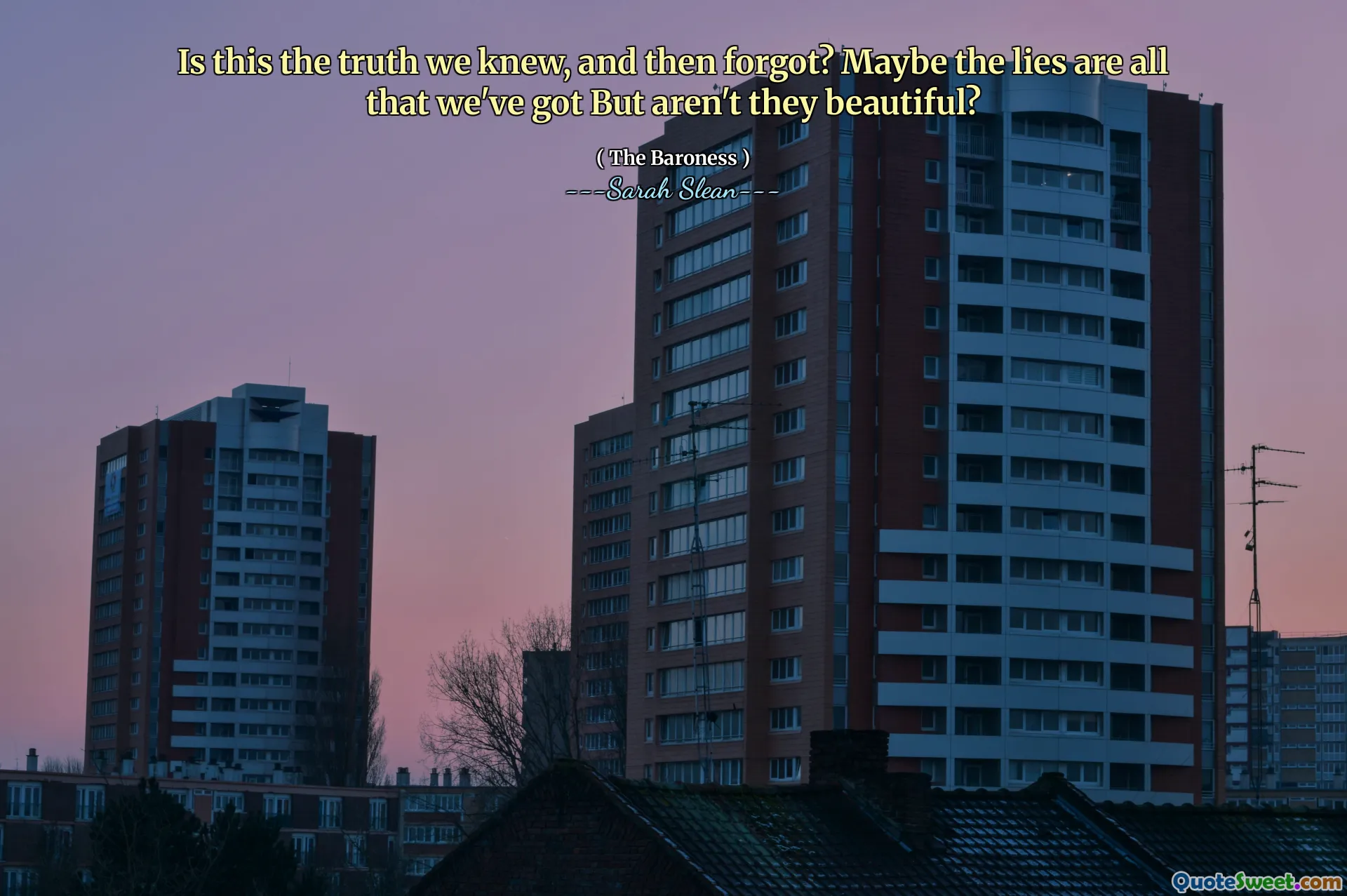
Is this the truth we knew, and then forgot? Maybe the lies are all that we've got But aren't they beautiful?
This quote delves into the complex nature of human perception and the fragile boundary between truth and falsehood. It prompts introspection about our collective memory and the stories we choose to believe. Often, we carry a yearning for authenticity, seeking out what is real amidst a sea of deceptions. Yet, life can be chaotic, and our understanding of truth may become obscured or intentionally blurred, leading us to accept lies as a form of comfort or even beauty. The phrase 'Maybe the lies are all that we've got' suggests a resigned acceptance of fabricated narratives, possibly because they fill the void left by the elusive nature of truth. Interestingly, the ending remark—'But aren't they beautiful?'—implies that, despite their origin, these stories or illusions possess a certain aesthetic appeal, perhaps because they serve a purpose or fit neatly within our worldview. This observation resonates with the idea that human beings often find beauty in deception—whether it's the idealized memories, optimistic fantasies, or societal myths we cling to. The quote also invites us to reflect on the power of storytelling, how it shapes our identity and understanding of reality. It raises questions about our reliance on constructed narratives and whether the comfort offered by lies outweighs the discomfort of facing the truth. In essence, this passage illuminates the delicate dance between truth, memory, and illusion, challenging us to consider what we truly value. It evokes a sense of bittersweet acceptance—appreciating the beauty in our delusions while acknowledging their role in shaping our perception of the world.
(The Baroness) - ---Sarah Slean---






